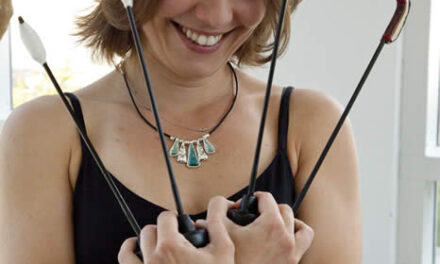George Frideric Händel (1685-1759), though born and raised in Germany, is one of Great Britain’s leading dramatic composers. At this time of the year we have a choice of performances of Handel’s most popular work, Messiah, but there are 42 operas, mostly in Italian and a dozen oratorios (mostly on Biblical subjects) to choose from, including this evening’s performance of Jephtha, one of the last oratorios Handel would compose.
Jephtha appears in the Book of Judges as a judge who presided over Israel for a period of six years (Judges 12:7). According to Judges, he lived in Gilead. He promised God that if he wins his battle against the Ammonites that, “whoever comes first out from the doors of my house to meet me when I return in peace from the Ammonites shall be the LORD’s, and I will offer him up for a burnt offering.” His daughter was the first to greet him, and he was bound by his oath to sacrifice her.
Maestro James Allbritten, Director of the UNCSA’s Cantata Singers and off campus, general director of the Piedmont Opera, has chosen well; the un-staged presentation on the stage of the Stevens Center is a musical gem not heard as often as it should be. The entire oratorio consists of three acts comprising 13 scenes, lasting three and a half hours. Fortunately for our modern audiences with their abbreviated attention spans, Maestro Albritten abridged the performance to two and a half hours, maintaining all of the seven choruses of Priests, Israelites, or Divine commentary, as in the extraordinary last act chorus, “How dark, O Lord, are Thy decrees” which ends with the elaboration of “Whatever is… is right.”
There are five roles consisting of the title role, Jephtha, his wife, Storgè, his daughter, Iphis, her suitor, Hamor, and Jephtha’s half brother, Zebul. Oh yes, there is also the Angel who appears in the last act to convey God’s pardon from the burnt offering if Iphis would forsake earthly love and do the work of the Lord. The aria of the Angel was sung by Claire Schuyler, who stepped out of the chorus to sing her message, with the purest soprano voice I have heard in many years.
The entire oratorio opens with the stentorian proclamation by the deep voiced Zebul: “It must be so!” sung by baritone Robbie Raso. Jephtha was admirably sung by Kameron Alston, whose clear and sweet tenor always commanded my attention, especially the melisma of the aria, “His mighty arm.” Storgè was sung by Kathleen Felty, a richly voiced mezzo-soprano with a mature velvety tone. Her foreboding was well expressed in the first act, “Some dire event hangs o’er our heads…Scenes of horror, scenes of woe.”
Iphis was sung by soprano Carly Orr, who memorably communicated the “smiling dawn of happy days.” Her suitor, Hamor, a pants role sung by the vivacious Danielle Romano, mezzo-soprano, was ever attentive and flirtatious.
Extra congratulations to the chorus who handled the extraordinary demands of “da capo” (back to the beginning) choruses followed by fugues with care and planning. The strings of the orchestra were in constant use as were the continuo, furnished by cellist Sam Mihavetz and harpsichordist Lucas Wong. Bravo to the various wind soloists who appeared only as needed by the parsimonious composer.
Well done! Bravo!











